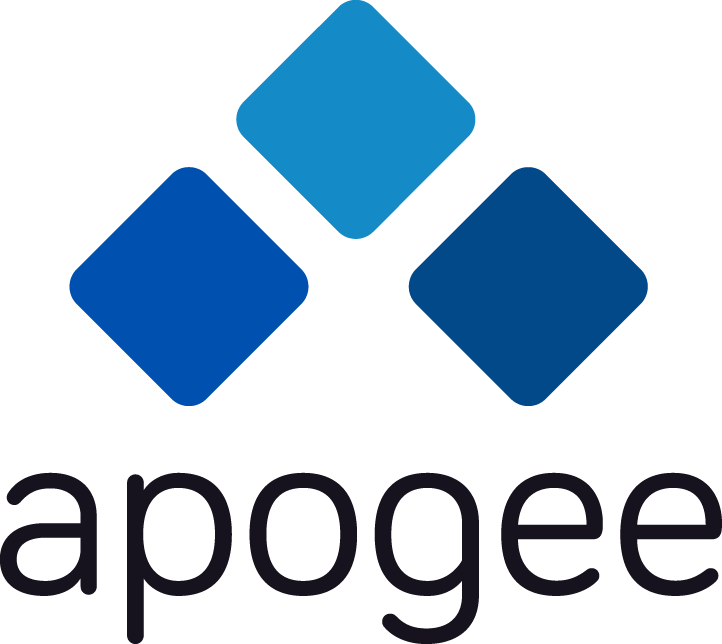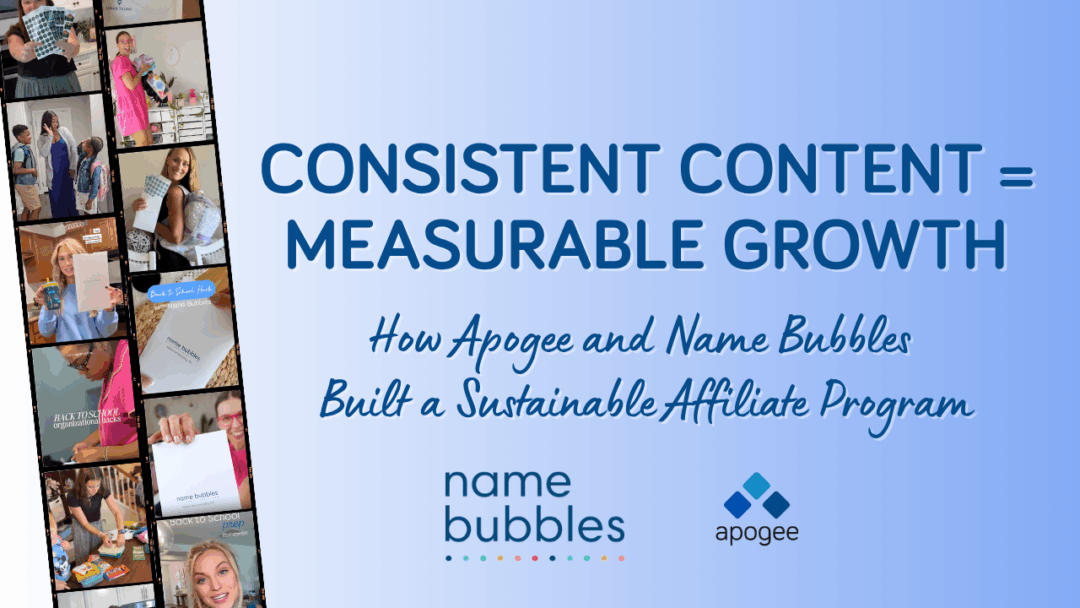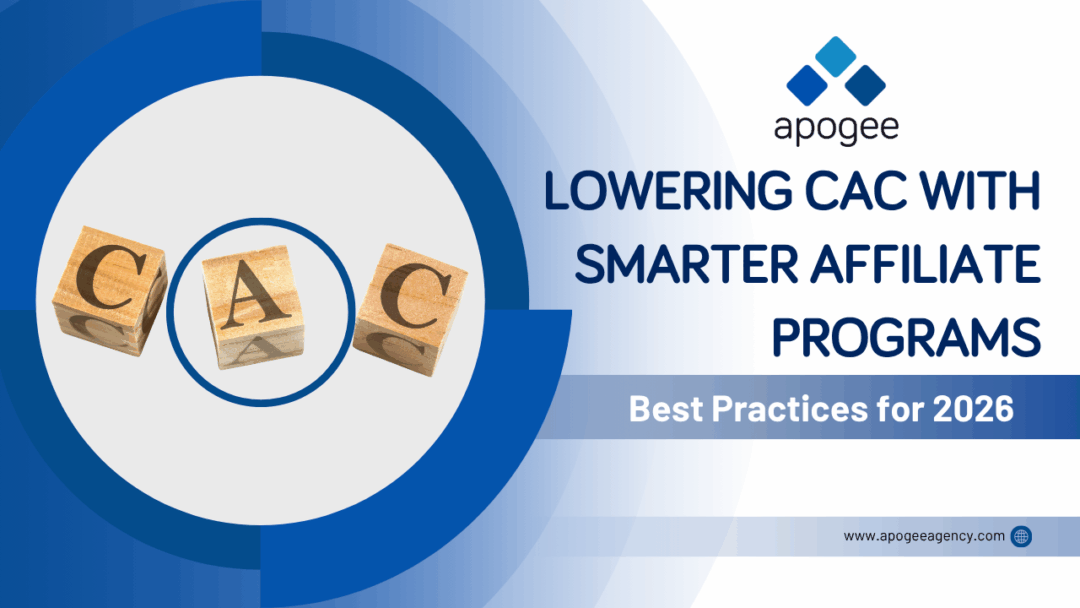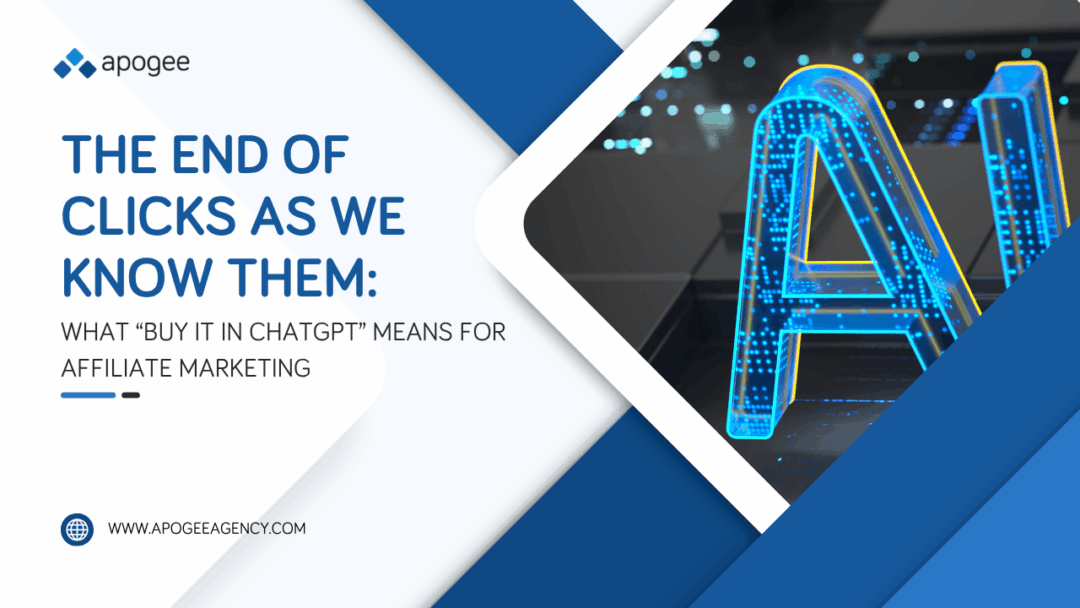
What to Expect from Your Affiliate Program
August 5, 2022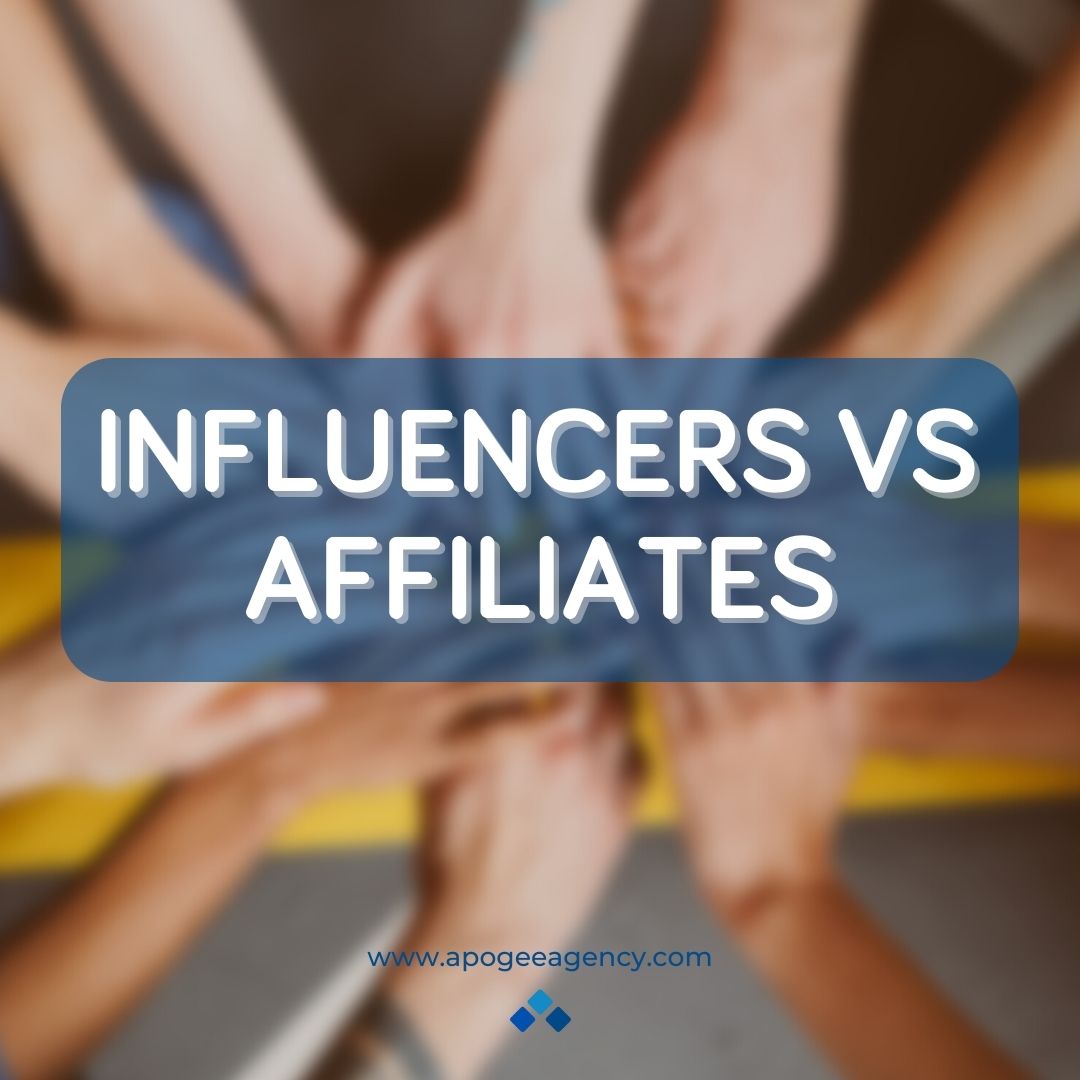
Influencer Marketing v. Affiliate Marketing
August 23, 2022Understanding affiliates is one of the most important aspects of running a successful affiliate program. Affiliates are the lifeblood of your program, and in this ever-evolving industry, it is crucial to know and understand how affiliate marketing works from the affiliate side. This understanding and perspective will help you to equip your affiliates with all of the tools they need to succeed in promoting your company.
As a business owner, you’ve used your time and expertise developing the best products, great packaging, engaging marketing materials such as flyers and graphics, and an attractive website. You have all the tools for a successful affiliate marketing program, but using all of those tools to effectively bring you the desired ROI might be more complicated than you think.
Hiring an experienced affiliate manager to run your program means getting someone who has established relationships (and trust) with affiliates and who knows how to use the tools you provide to best impact your brand. That goes a long way with bringing new affiliates on board with a program and getting them active and excited to create content. In addition, a professional affiliate manager will have a deep understanding of the quirks, nuances, and motivators among the various affiliate types and the patience to handle them all.
Managed vs. Unmanaged Affiliate Programs
Many brands try to launch an affiliate program with a simple plugin or by setting up a basic plan on an affiliate network such as Refersion or ShareASale. While this is a great way to start, running a successful affiliate program is very hands-on and requires full-time effort to yield great results.
A program can launch with the basics on autopilot and start to have sales if there is existing brand awareness and the product is wanted or needed. With a well-known and well-loved brand, affiliates will seek out the affiliate program and get active on their own.
When a brand is not well known, it will require a full-time proactive manager with a genuine interest in helping the affiliates and giving them what they need. This manager will need to seek out good partners for the program, introduce the brand, and invite the partner to join the program with an attractive offer that makes the potential affiliates feel as if the time they put into content creation for their audience will be worth their while.
In addition, the affiliate manager needs to support, encourage, and inspire every affiliate to create content for the brand to produce sales. This relationship building includes open and constant communication of product knowledge, trends, deals, incentives, and troubleshooting.
The best managers balance the brand’s and the affiliate's needs and nurture the relationship to keep your affiliates acting as super fans of your brand.
Types of Affiliates
The affiliate marketing industry is a myriad of different types of marketers who each play a particular and important role in your affiliate program. The goal of any affiliate program is to partner with the right kinds of content creators who understand how to drive the right traffic for your brand, but understanding the method of promotion for each one and how it pertains to the customer journey is important for setting the right expectations for results.
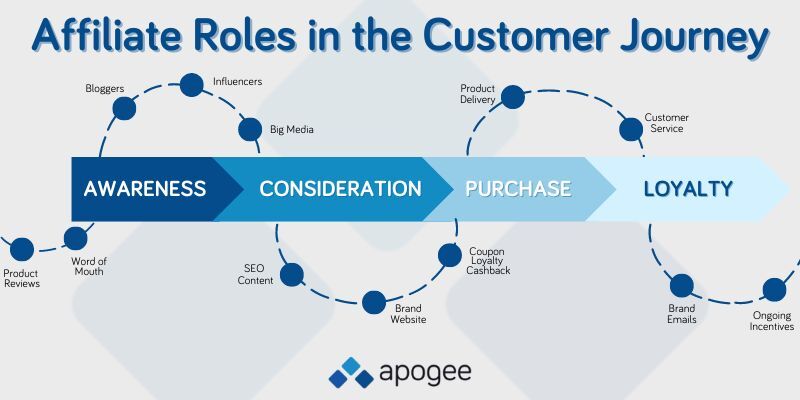
Content Creators/Bloggers: Bloggers are great for creating long-form content about your brand and product with a personal touch. Pro bloggers spend seven days a week connecting and growing an audience with similar interests. Their communities are often highly engaged, which offers an excellent opportunity for brand awareness and starting the customer journey. While most bloggers are more “lifestyle” and cover various topics, one or two niches typically stand out. Bloggers also have a social media presence on the most popular platforms, where they can have a solid and loyal audience.
Influencers: Similar to bloggers, influencers spend their time connecting and growing their audience using only social media. Some influencers work on several different platforms, while others stick to dominating just one. Influencers have high engagement on their chosen platforms and play an important role in brand awareness with the bonus that they provide conversions. As a result, influencers drive “virality” and can reach a significant number of customers at a fraction of the cost of paid media.
Major Media Publications: In recent years, more and more major media publications have seen the opportunity of affiliate marketing and are incorporating paid placement + CPA type marketing into their content and business plans. Major media pubs have large audiences, can offer significant exposure, and can often make a significant impact in an affiliate program.
SEO Experts: SEO experts often run very niche sites written solely for search intent. They do significant research to produce comprehensive long-form content with a strategy that, when done correctly, can dominate many search intent keywords. SEO experts and niche site owners seldom bother with social media, instead spending time creating great articles that rank well. These articles meet the customer journey at the consideration phase and help consumers decide on purchasing.
Coupon, Loyalty, & Cashback: At Apogee, we refer to these publishers as “closers” since they often take your customers from just browsing to ready to purchase with an added deal or incentive. Apogee works with top-tier site partners to ensure proper coupon practices and preserve premium brand integrity.
Remember that diversity is key. Working with all these types of affiliate marketers will help you with brand awareness, social proof, and affiliate sales. You never want to rely on just one kind of publisher. Instead, shoot for a balanced mix that will reach potential customers at every stage of the customer journey.
